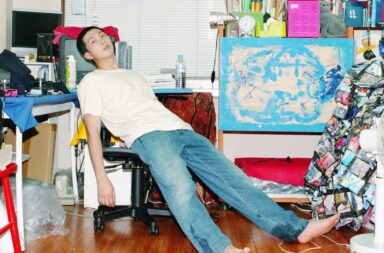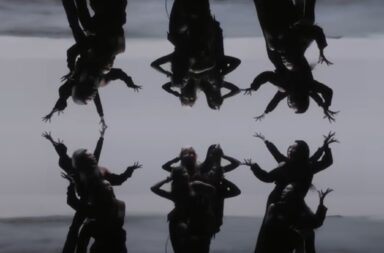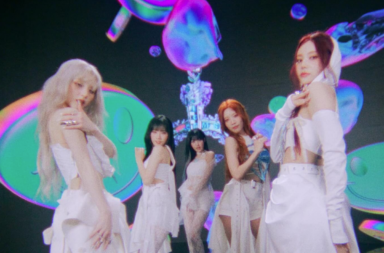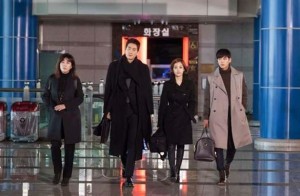 While MVs and albums attempt to churn out wonders within the span of three minutes and an hour, respectively, K-dramas sit back, wonder, smoke a cigar and get down to working on minute intricacies.
While MVs and albums attempt to churn out wonders within the span of three minutes and an hour, respectively, K-dramas sit back, wonder, smoke a cigar and get down to working on minute intricacies.
Reinvention of popular tropes, a deluge of idols, the rise of thriller romance, the influence of OSTs and a little unexplainable something — writers Joyce, Irteqa and Alolika feel that K-dramas so far have successfully reestablished older trends in more polished colours.
| Joyce | Irteqa | Alolika | |
| 1 | Healer | Hyde, Jekyll, Me | The Lover |
| 2 | Kill Me Heal Me | Legendary Witches | Healer |
| 3 | Mask | My Heart Twinkle Twinkle | The Producers |
| 4 | Missing Noir M | Healer | Kill Me Heal Me |
| 5 | Angry Mom | Birth of a Beauty | Exo Next Door |
Honourable mentions: Ho-gu’s Love, Who Are You: School 2015, Girl Who Can See Smells
Joyce: Seems like Healer is the hot favourite here. What about it made it so popular, especially given the international fan fervour it generated?
Alolika: In all honesty, I can’t put a finger on the exact reason it caught my attention. There is nothing special about the plot itself; in fact, the plot by the last few episodes dwindles into something completely unbelievable and feels terribly rushed. Part of the magic is, of course, Ji Chang-wook. The man is undeniably handsome, and I could spend hours looking at his pretty face, irrespective of the drama.
The other part is the amazing chemistry between Ji Chang-wook and Park Min-young. Healer, with its adorable lead couple, manages to establish how important it is to have a convincing love line in a K-drama. I happened to watch Healer and Liar Game simultaneously, and that kind of amplified the lack of plot or, rather, the looseness of Healer‘s plot, which is also why characters are of prime importance in the drama since they are the ones driving the narrative and making it interesting. Lastly, few dramas have awesome hackers like Kim Mi-kyung.
![]() Irteqa: I agree with Alolika; the plot for Healer was not extraordinarily original. In truth, it was pocked with plenty of tropes and lulls, ultimately unfurling into something quite unexplainable and impromptu. I thoroughly enjoyed the undying aura of beauty surrounding Ji Chang-wook throughout his travails as the enigmatic Healer, adorable Bong-soo and valiant Jung-hoo.
Irteqa: I agree with Alolika; the plot for Healer was not extraordinarily original. In truth, it was pocked with plenty of tropes and lulls, ultimately unfurling into something quite unexplainable and impromptu. I thoroughly enjoyed the undying aura of beauty surrounding Ji Chang-wook throughout his travails as the enigmatic Healer, adorable Bong-soo and valiant Jung-hoo.
Once you realize the profundity of the three personas he took on in just this one drama, there is absolutely no way Ji Chang-wook can mosey along without being recognized for his immense acting skill. Yes, his chemistry with Park Min-young was outstanding as well. She recovered very nicely from her covertly subservient role in A New Leaf and went on to portray a very resourceful, resolute and romantic female lead in Healer.
What made Healer an all-encompassing enchantment for me was Yoo Ji-tae as Kim Moon-ho. From his pseudo-poetic dialogue to his private struggle with morality, Moon-ho was a suave, most often questionable (although wonderfully so) and passionate character whose intentions confounded me to the end. On a side note, not only was Kim Mi-kyung an awesome hacker ahjumma, but she influenced my cooking abilities deeply. I only learned how to roll kimbap (almost successfully) after watching her repeatedly!
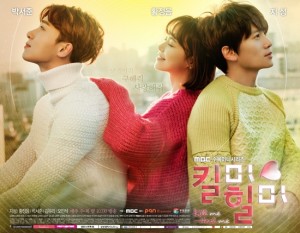 Joyce: Oh, yes, watching Healer go undercover as scaredy-cat Bong-soo was pretty hilarious, but the way Bong-soo got jealous of Young-shin falling in love with his alter ego was many layers of awesome-sauce. Plot aside, what really made Healer work was the chemistry and camaraderie between the leads and their well-written characters — and extra credit given for our spunky heroine.
Joyce: Oh, yes, watching Healer go undercover as scaredy-cat Bong-soo was pretty hilarious, but the way Bong-soo got jealous of Young-shin falling in love with his alter ego was many layers of awesome-sauce. Plot aside, what really made Healer work was the chemistry and camaraderie between the leads and their well-written characters — and extra credit given for our spunky heroine.
Seems like we have a showdown of split personality dramas, Kill Me Heal Me with 2 votes, Hyde, Jekyll, Me 1. I’m interested to hear why Hyde ranked first on Irteqa’s list since Kill Me‘s plot and humour was miles better to me.
Irteqa: For some reason, I feel like the DID (dissociative identity disorder) plot scenario is something inevitable; it’s inevitable like the arrogant chaebol and noble poor girl romance, inevitable like the families-embroiled-in-elitism outline, and it is inevitable like amnesiac out for redemption story line. DID dramas either combine scientifically plausible data with an interesting plot or are emphatically fantastical with a rare semblance of reality. I think that Kill Me Heal Me is definitely the former and Jekyll, Hyde, Me to a degree is the latter.
I found Kill Me Heal Me to be an honest and rational approach to the real life mental illness that is DID; Ji Sung’s artistry poured forth in his roles so distinctly that I couldn’t help but wish that the drama would never end. Although Kill Me Heal Me was a magnificent composition, I still chose Jekyll, Hyde, Me as my top DID drama because not only are Hyun Bin and Han Ji-min the most beautiful drama couple I have ever laid eyes on, but also the drama executed a simple and heartrending approach to DID.
It may or may not have been scientifically credible, but Goo Seo-jin and Robin were so flawed and innocent in their desire to live and love, and Han Ji-min’s character Jang Ha-na was stubbornly devoted to Robin (though bravely so) because she recognized the sentient nature of their time together. Hyun Bin not only looked fabulous, but his acting was notable because of how much he individualized Robin and Goo Seo-jin and how he ultimately made them into one complete being in the end. It was more fantastical than factual and more romantic than realistic, either way I enjoyed it very much.
Joyce: I do admit that Hyun Bin did a great job of capturing the dichotomy of his personalities, but Ji Sung did a phenomenal job for his seven personalities. I loved that he went all out for the comedic touch, with Yo-na’s antics, but didn’t forget to ground the back-story of each character. His fantastic performance definitely elevated the heart of the superb writing, and I don’t think I ever shed so many tears at the farewell of one-seventh of a character.
And in the same way Hana was essential in Seo-jin’s recovery, I think the same can be said for Ri-jin. She definitely crossed some doctor-patient boundaries, but there’s no denying that she had that special mutual understanding with each of the other personalities, that eventually brought about Do-hyun’s recovery.
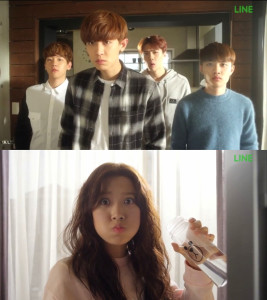 Irteqa: What I’ve noticed this year more than ever in K-dramas came an array of super popular idols and actors/actresses cast as leads, and also the plenitude of celebrity pop-ups (cameos) in a given K-drama. How do we feel about idols like IU or Exo as focal figures in dramas, and do they outshine actors like Kim Soo-hyun, Park Yoo-chun, or Shin Se-kyung? Also, do we like celebrity cameos or do they take away from the exclusivity of a K-drama cast?
Irteqa: What I’ve noticed this year more than ever in K-dramas came an array of super popular idols and actors/actresses cast as leads, and also the plenitude of celebrity pop-ups (cameos) in a given K-drama. How do we feel about idols like IU or Exo as focal figures in dramas, and do they outshine actors like Kim Soo-hyun, Park Yoo-chun, or Shin Se-kyung? Also, do we like celebrity cameos or do they take away from the exclusivity of a K-drama cast?
Alolika: As long as the idols’ acting don’t make me close my tab and feel emotionally scarred, I am okay with K-dramas being inundated by them. Idols can be messily divided into three categories: those who are employed only for ratings, (Exo in Exo Next Door), those who are employed for their acting skills (IU in The Producers) and those who are employed for both (Do Kyung-soo in I Remember You).
Exo Next Door exemplifies the shadowy limit to obsessing over ratings. Was the drama good in a critical sense? No. Did it run the risk of turning into a cringe-fest? Yes. But as Chelsea mentioned in her review, it was custom made for the converted and its very customization made it a “good” drama; the sub-par acting became an essential part of the story.
This lays emphasis on how idols require careful role allocation. Cameos are wonderful in this regard because they allow idols to flirt with different characters without being shunted by the audience or the acting community for their poor dramatic skills, and barely affect the main narrative — the ideal testing arena to figure out whether this idol will work or not. Now, we all know that Suho as church oppa will never work. Similarly, idols with commendable acting skills will never run the risk of outshining the veterans in the field. Fortunately or unfortunately, the hierarchy is such that an idol who identifies as an idol first will always be measured to the levels set by “actual” actors. You can, at most, be as good as them or you can be awful. IU can only be, at most, as good as Gong Hyo-jin, never better. No matter how good at acting you are, an actor actor will always have a few more years of specialization than you, and that is where the war begins and ends.
Joyce: For idols-actors, I find that they tend to appeal more to overseas markets rather than the domestic one. The local audience seems to prefer quality over star power, which is how a drama populated with Hallyu star power could very well tank in favour of a better drama with smaller names. However, overseas fan are pretty ardent in streaming and downloading a drama with their specific bias in it, regardless of its quality. Somehow, sitting through 16 episodes of questionable plot and acting is a way of showing our fervent support.
Alolika: I completely agree with Joyce’s point on idol-actors and overseas appeal. I watched Exo Next Door because, well, Exo, same reason I watched It’s Okay, That’s Love and Cart. It was sheer coincidence that all the three mentioned also turned out to be entertaining in their own way. The kind of hate Nam Tae-hyun is getting for his recent drama only reinforces Joyce’s point, which is not to say that the fandom in South Korea does not mindlessly consume dramas which feature their biases, but it is to say that the general population, the population not invested in K-pop groups, would obviously not be charmed by an idol simply because (s)he is an idol.
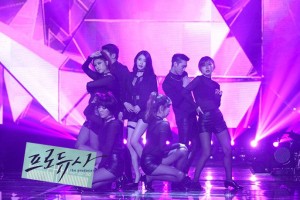 Irteqa: I have never quite been one of those K-drama fans who shriek in excitement upon learning that an idol has been cast as the lead or supporting figure in a drama; although in the past when I tuned into a K-drama with an idol lead, I was either pleasantly surprised or decided that I was never going down that road again.
Irteqa: I have never quite been one of those K-drama fans who shriek in excitement upon learning that an idol has been cast as the lead or supporting figure in a drama; although in the past when I tuned into a K-drama with an idol lead, I was either pleasantly surprised or decided that I was never going down that road again.
I agree with you ladies, an idol lead is an extension of marketing geared towards international fans. Idols are cast in hopes of attracting all fans in general, but only those who are immersed in K-pop truly give the drama high ratings and their full attention, even if the acting is flawed.
On the other hand, there are idols who are earnestly recognized and cast in K-dramas both for their natural (acting) talent and because they are evidently crowd-pleasing. Such is the case with IU, Uee and Lee Joon. Sadly, the reality is exactly as Alolika mentioned, they can go no further than those who are actors by profession, no matter how talented they are.
In Lee Joon’s case, he absolved his idolhoood and committed everything to starting anew as an actor, and I think that since he is naturally gifted and cognizant of the gravity of acting, he will make it further than most. Economic, social, and cultural barriers aside, I think success depends on the degree to which an idol is dedicated to acting paired with inherent talent.
Alolika: I am intrigued by Irteqa’s nomination of Birth of a Beauty. I only happened to read the synopsis and the whole “fat girl turned slim beauty” was a little off-putting to say the least. The review on it did mention that it provided a good, if somewhat flawed, social commentary on the fat girl/perfect girl plot device, but I wanted to know whether it actually manages to maintain it till the end or does it collapse into a mess?
Irteqa: I selected Birth of a Beauty because I was embroiled in one of those situations where you can’t quite pinpoint a reason for liking a particular K-drama but continue to watch it. The I-need-to-change-myself-completely-to-get-revenge outline is indeed threaded in social acceptability, body image and self esteem quandaries. Living inside of everyone, believe it or not, is an atelophobiac. I can say though, that this drama delivered a deep message coated in comedy and romance.
 With Birth of a Beauty, Sa Geum-ran (Han Ye-seul) was always cheerful and selfless — she didn’t seem to care about the problems she encountered because of her weight and appearance. I really liked that about her: she was a heroine untainted by the evil machinations of her in-laws and husband and simply lived life the way she thought it was destined to be. The segment where she begged Han Tae-hee (Joo Sang-wook) to completely change her was a product of years of resentment, scorn and cruelty she had endured.
With Birth of a Beauty, Sa Geum-ran (Han Ye-seul) was always cheerful and selfless — she didn’t seem to care about the problems she encountered because of her weight and appearance. I really liked that about her: she was a heroine untainted by the evil machinations of her in-laws and husband and simply lived life the way she thought it was destined to be. The segment where she begged Han Tae-hee (Joo Sang-wook) to completely change her was a product of years of resentment, scorn and cruelty she had endured.
In this light her sole focus was on avenging her former self, the self she had subjected to degradation in order to bring ease to the shallow man she loved, through her new self, the self who was beautiful, confident and astute. It was interesting how her kind and giving nature continued to prosper in her new self throughout the series.
The drama was ultimately implying that unless the beauty within you is on par or exceeds the beauty outside of you, you cannot hope to gain or change anything. For this reason, I believe that Birth of a Beauty was able to tackle the inescapability of societal, familial and personal struggles surrounding body image while reminding viewers to value the beauty within.
Alolika: Deviating from the main elements of drama, I was wondering to what extent does the OST of a drama affect your overall experience? Is the function of OST only restricted to auditory gratification, or does it actually add to the narrative and the worth of a drama?
I had trouble getting interested in Kill Me Heal Me in the first few episodes, but I persevered because I was so enchanted by “Auditory Hallucination”, especially Jang Jae-in‘s voice. Over the journey of 20 episodes, the song developed a greater importance as a plot device usually employed in a moment of crisis. Ben‘s “You” in Healer is another song which amplified my experience of watching the drama. The song itself became symbolic of the couple, and even if I hear it now, I am pretty sure I would still curl up and “aww” my heart out.
The Lover did not have an OST per se, but they employed songs as literary devices most successfully. The drama had a playlist of songs by various artists and each song — lyrics and composition — corresponded brilliantly with whatever scene was being represented and, as mentioned before, enhanced my viewing pleasure.
Joyce: OSTs are rarely the reason I will stick on with a drama, but it’s usually the cherry on top of an already well-baked cake. “Auditory Hallucinations” was a great example of that, but the OSTs for Angry Mom and Who Are You also rounded up a pleasant and emotional viewing experience.
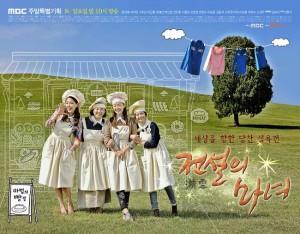 Irteqa: I can’t deny the melodious essentialism of a good OST, as I find it important to recognize all aspects of a K-drama (dynamics of acting, OST, location, apparel, props, etc.) and assess the degree to which they contribute to the cohesion and utility of the K-drama. There have been plenty of K-drama OSTs that have led me to a radiant and sentient side of Korean music distinct from K-pop, and for that I am grateful.
Irteqa: I can’t deny the melodious essentialism of a good OST, as I find it important to recognize all aspects of a K-drama (dynamics of acting, OST, location, apparel, props, etc.) and assess the degree to which they contribute to the cohesion and utility of the K-drama. There have been plenty of K-drama OSTs that have led me to a radiant and sentient side of Korean music distinct from K-pop, and for that I am grateful.
A good OST is a small, albeit serendipitous, fragment in the overarching entirety of a K-drama. I’m going to be honest here and say that the OSTs for Legendary Witches gave me both thrills and chills; Hanna’s “Love Story” gave depth to strength-through-sisterhood crux of the drama, while Lee Yu Rim’s “Love…An Earnest Song of Spring Sung in the Winter” started to get a tad annoying and lost some efficacy after being played without fail during every tragic moment in the drama.
Joyce: Favourite characters so far? For me, it’s a tough fight between Healer himself, Cha Do-hyun and Co., and Mom of the Year Jo Kang-ja. Honourable mention goes to high school heart-breakers Go Bok-dong and Gong Tae-kwang.
Irteqa: For favourite characters so far, mine include In Gyo-jin‘s character Gyo Ji-hoon for being the most responsible and caring elder brother in a K-drama that I have ever seen, Bae Soo-bin ‘s phenomenally insane character Chun Woon-tak for clearly defining the two faces of love, and Ji Chang-wook’s character Healer for being the ultimate superhero.
Alolika: My favourite characters include Ji Sung and his many avatars for successfully embodying both danger and vulnerability in all his roles, Ji Chang-wook for being the perfect prince charming, Gong Hyo-jin for being the complicated “strong” woman, Jang Yoo-sang for creating an iconic BroTP with Sehun and Ryu Hyun-kyung for being so eerily relatable.
(Images via KBS, MBC, SBS)
